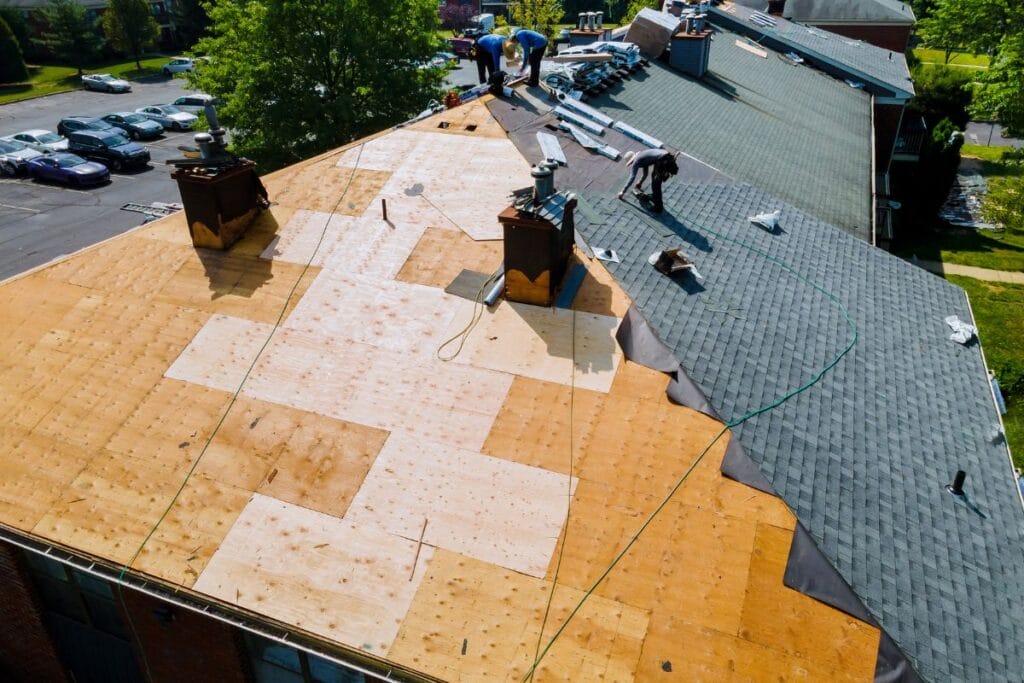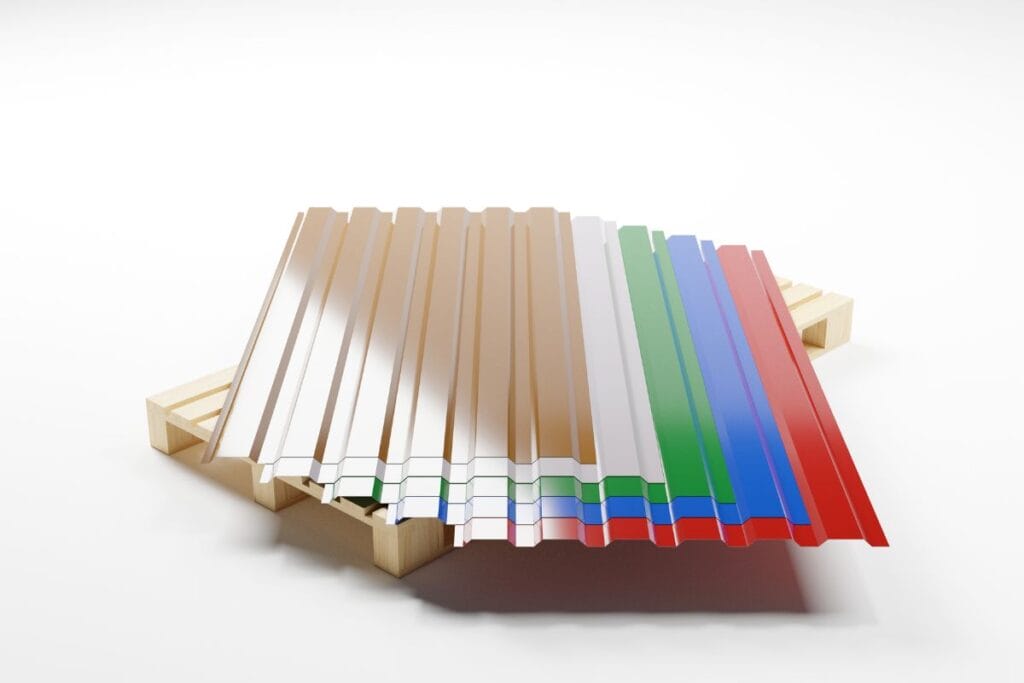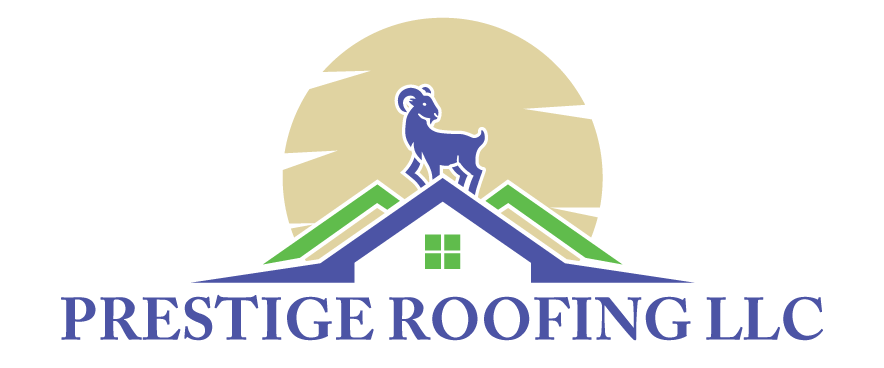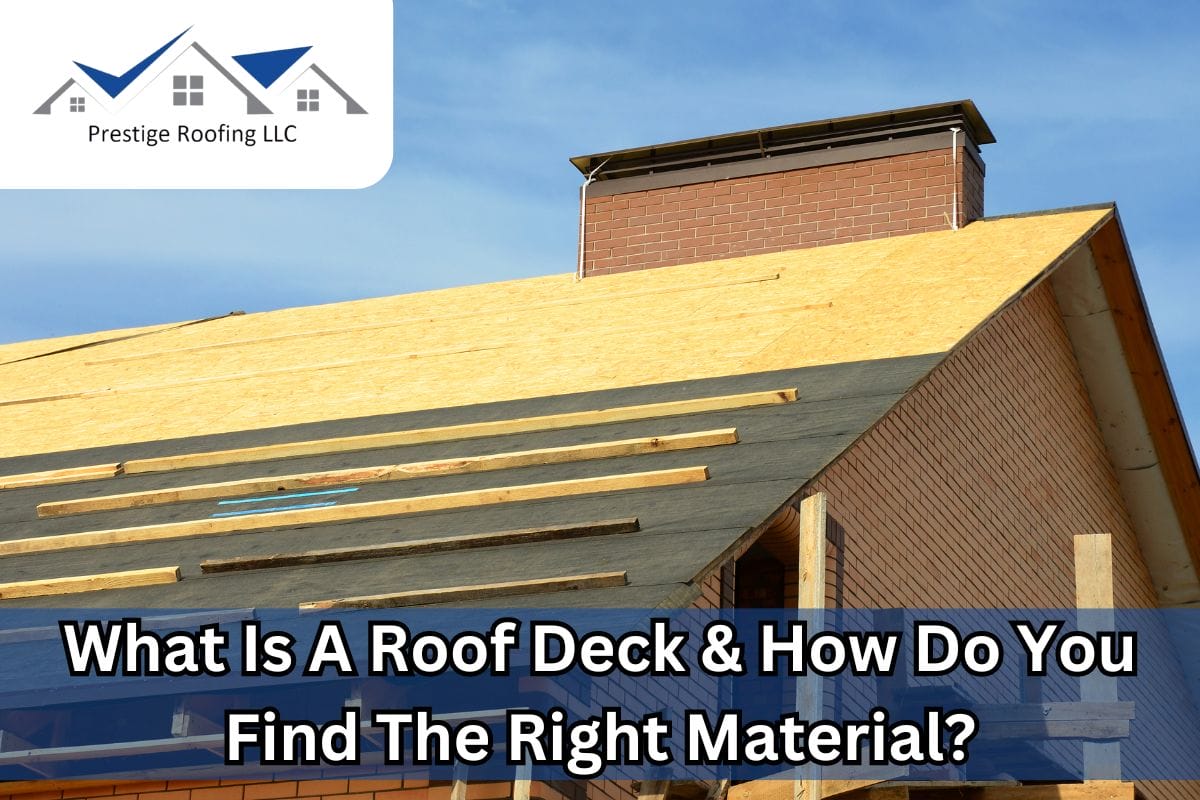As a homeowner, you might be familiar with the visible parts of your roof, like the shingles or gutters. After all, these are part of your roof’s first line of defense and improve the durability and look of your home.
But have you ever wondered about the foundation that holds everything together? That’s where the roof deck comes in. The roof deck is as important as other roofing materials you spend a lot of time choosing. If you are looking to replace your roof or install a new one altogether, you need to know about the different roof deck options.
In this blog post, we’ll dive into what a roof deck is, explore the different ones available, and discuss why you should care about it as much as you care about the rest of your roofing system.
What Is A Roof Deck?
The roof deck is the solid base layer that everything else on your roof sits on top of. It’s kind of like the foundation of a house, since without it, there’s nothing to build the rest of the roofing system on. The roof deck supports all the outer materials like shingles or metal panels that protect your home from rain and other forms of weather. Having a well-built roof deck is super important, because if it’s not installed correctly, it can cause major problems like leaks, or even cause the whole roof to collapse over time.
The Importance Of A Roof Deck
A sturdy, well-constructed roof deck is crucial for the safety and longevity of your entire roofing system. Here is why you need to ensure that your roof deck is structurally sound:
Creates Support For Your Roofing Materials
The main role of the roof deck is to provide structural support and stability. The roof deck supports the materials that go above it. This becomes even more important when you have tile or slate, which are heavy roofing materials that need a lot of support.
It transfers the weight of the roofing materials and any snow/ice loads evenly across the roof’s framing below. A solid, structurally sound roof deck prevents sagging between the trusses/rafters and keeps the whole roof nice and rigid.
Forms A Waterproof Base
The roof deck serves as an essential waterproof barrier in your roofing system. It acts as the foundational layer that, when combined with underlayment, effectively directs water toward the gutters, preventing moisture buildup.
However, even small imperfections like gaps or holes caused by improper installation can compromise its protective capabilities, leading to leaks that can cause rot, mold, and damage to the interior. It’s important to properly install flashing around vents and chimneys to ensure they integrate seamlessly with the roof deck, enhancing its ability to keep water out.
Helps Your Roof Last Longer
A roof deck made from the right materials and installed correctly can easily last 20 to 30 years or more with basic maintenance. Using rot-resistant wood like treated plywood, or non-wood options like concrete, ensures the deck won’t deteriorate from moisture.
Enhance Energy Efficiency
The roof deck plays a role in your home’s energy costs. A tightly sealed deck with properly installed insulation prevents air leaks and heat transfer through the roof. This keeps the heat or cool air inside your home rather than leaking out, lowering your year-round utility bills.
A Strong Roof Deck Provides Safety For Roofers
Beyond just supporting the weight of your roof, a well-built deck allows safer access for maintenance, repairs, or replacing old materials. Roofers can walk across it without fear of falling through. It also acts as a protective surface underneath in case shingles get blown off in storms.
Types Of Roof Deck Materials
Among the material options you have to choose from for your shingles and gutters, there are a variety of options for roof decks too.
Plywood Roof Decks

One of the most common and economical options for a roof deck is plywood. These wood panels are made from thin layers of wood veneer pressed together. Plywood decks offer excellent strength and durability, making them a popular choice for residential and light commercial roofing projects.
The plywood is nailed or screwed directly onto the roof trusses or rafters in a staggered pattern, creating a solid surface to attach roofing materials. Different thicknesses and grades of plywood are available to suit the structural requirements.
Oriented Strand Board (OSB)

OSB is another wood-based material used for roof decks. It’s made from wood strands or flakes arranged in layers and compressed together with wax and resin binders.
While not quite as strong as plywood, OSB is a more affordable option that still provides sufficient strength for most sloped roof applications.
Concrete or Gypsum Decks
For larger commercial or industrial buildings, a concrete or gypsum roof deck may be used. These decks are poured or cast in place, creating a monolithic surface that can span wide distances without additional support.
Concrete decks are incredibly sturdy and fire-resistant, while gypsum decks offer a lighter weight with similar strength and durability. However, both of these roof decks are more expensive than other options and the installation is more labor-intensive.
Metal Decks

Metal roof decks are commonly used in commercial and industrial applications where long spans and high load-bearing capacities are required. These decks are typically made from galvanized steel or aluminum and can be designed with various profiles and gauge thicknesses to meet specific project requirements.
Metal decks offer excellent strength-to-weight ratios, fire resistance, and long-term durability. They can also be installed over open framing or used as part of a composite system with concrete or insulation materials.
Best Metal Roof Deck Options
- Galvanized steel (various gauges and profiles)
- Aluminum (various gauges and profiles)
- Stainless steel (for corrosive environments)
Also Read: Roof 101: Your Pictorial Guide To The 19 Essential Parts Of A Roof
Is Your Roof Deck Up To Code?
When it comes to your home’s roof deck, it’s not just about choosing good materials, it’s also about meeting strict building requirements. Building codes are the set of rules and regulations that cover construction practices for safety and structural integrity.
If your current roof deck has been in place for years then it is even more important to make sure that your home meets the criteria, as decks now need to be thicker and more durable.
Here are some basic building code requirements for the roof deck, but keep in mind that your requirements may differ depending on where you live. Always check with your local municipal office to learn whether you are in violation of building codes or not. :
- If you decide to install a plank decking then you need to make sure that it is the adequate thickness, and that gaps are less than 1/8th of an inch
- Asphalt shingles shall only be installed on solid roof decks. This means the roof deck must consist of a continuous wood structural panel like plywood or OSB
Best Roof Installation Services In Wisconsin
Our team at Prestige Roofing understands the importance of having a sturdy, structurally sound roof deck, and we want to make sure that you don’t face any problems with your roof.
We are the best roof installation company in Wisconsin with years of experience installing asphalt shingles and metal roofs. We also provide commercial services for flat roofing systems as well. If you have questions about the type of roof deck your home needs, give us a call today at 920-791-0414 and find out how we can help you.

